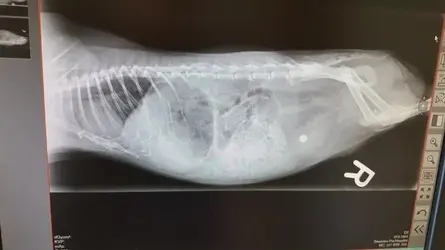Mosey
Junior Guinea Pig
- Joined
- Mar 9, 2018
- Messages
- 12
- Reaction score
- 6
- Points
- 135
I've had this pig on a stone prevention diet since his first day home. I was devastated to find out that he had a stone. It's since been removed and he's bounced back remarkably for a 4 year old pig. I'm so very grateful for that. I've made some vet recommended changes and some of my own based on him specifically.
Oddly he's never had any deposits in his urine except for when he's eaten radicchio. This probably isn't the norm, but he'll never have it pass his lips on my watch again. I'm feeding him Oxbow garden select pellets. My exotic vet has strongly advised me not to go pelletless. He doesn't eat more than 2 tsps of these in a day. I feel if he can get a variety of balanced calcium phosphorus ratio vegetables several times a day, I don't see why I can't go pelletless. I do have a bit of an issue giving him certain vegetables because you're limited to low calcium phosphorus, and he's intolerant to some of those such as peppers. He eats lots of zucchini, grape or cherry tomatoes, cucumber, when in season corn husks and fresh grass. He gets a very small piece of honey dew mellon, half a grape, three bluberries or a sliver of apple maybe eight times a year. I've never seen deposits after he eats romaine, it sounds like it might be a good idea to cut that out. My vet said that romaine is great people who have stone pigs seem to say it's not. For now I'm cutting him to a teaspoon of pellets per day until I can find a way to broaden his variety of vegetables more without causing him bloat.
I unfortunately never realized how much calcium carbonate was in our local drinking water. I'm now only giving distilled water. He eats Oxbow orchard grass.
My vet told me that using a back massager would help stir up the crystals and prevent stones from forming. I found a vibrating back massaging ball that I set inside of a blanket and place a cat litter box with a pillow inside and set him in it. I was very pleased to see that he fell asleep in his vibrating bed. Hopefully it helps, but it certainly doesn't seem to bother him one bit.
I've made a few changes that I'm hoping dearly prevent any future stones. If anyone has experience with stone pigs and has any advice to alter what I'm doing I'd greatly appreciate it. I'll do absolutely anything to have the privilege to care for him for as long as I possibly can.
Thank you for reading my very long post and thank you in advance for sharing your knowledge and advice.
Oddly he's never had any deposits in his urine except for when he's eaten radicchio. This probably isn't the norm, but he'll never have it pass his lips on my watch again. I'm feeding him Oxbow garden select pellets. My exotic vet has strongly advised me not to go pelletless. He doesn't eat more than 2 tsps of these in a day. I feel if he can get a variety of balanced calcium phosphorus ratio vegetables several times a day, I don't see why I can't go pelletless. I do have a bit of an issue giving him certain vegetables because you're limited to low calcium phosphorus, and he's intolerant to some of those such as peppers. He eats lots of zucchini, grape or cherry tomatoes, cucumber, when in season corn husks and fresh grass. He gets a very small piece of honey dew mellon, half a grape, three bluberries or a sliver of apple maybe eight times a year. I've never seen deposits after he eats romaine, it sounds like it might be a good idea to cut that out. My vet said that romaine is great people who have stone pigs seem to say it's not. For now I'm cutting him to a teaspoon of pellets per day until I can find a way to broaden his variety of vegetables more without causing him bloat.
I unfortunately never realized how much calcium carbonate was in our local drinking water. I'm now only giving distilled water. He eats Oxbow orchard grass.
My vet told me that using a back massager would help stir up the crystals and prevent stones from forming. I found a vibrating back massaging ball that I set inside of a blanket and place a cat litter box with a pillow inside and set him in it. I was very pleased to see that he fell asleep in his vibrating bed. Hopefully it helps, but it certainly doesn't seem to bother him one bit.
I've made a few changes that I'm hoping dearly prevent any future stones. If anyone has experience with stone pigs and has any advice to alter what I'm doing I'd greatly appreciate it. I'll do absolutely anything to have the privilege to care for him for as long as I possibly can.
Thank you for reading my very long post and thank you in advance for sharing your knowledge and advice.
